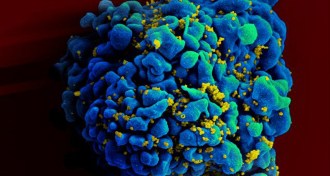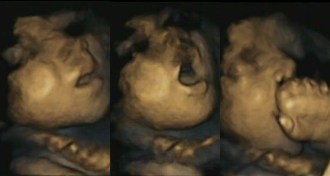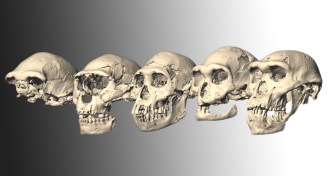Humans
Sign up for our newsletter
We summarize the week's scientific breakthroughs every Thursday.
-
 Health & Medicine
Health & MedicineNew definition of ‘full term’ narrows on-time arrival window
Until now, babies born at any time during a wide five-week window were considered fully cooked. Now, a panel of clinicians says otherwise.
-
 Humans
HumansWhat makes a face go round
Genetic enhancers acting far away from their intended genes can help shape a face during development.
-
 Health & Medicine
Health & MedicineInactive HIV poses even greater barrier to cure
The reservoir of dormant virus strains is larger than scientists estimated, a finding that could make the virus harder to combat.
By Science News -
 Psychology
PsychologyGroups recall travel details better than loners
Small teams of people can recite key information from public announcements better than any one person.
By Bruce Bower -
 Anthropology
AnthropologyHunting boosts lizard numbers in Australian desert
Reptiles prefer to live in places aboriginal people have burned.
-
 Humans
HumansOur Final Invention
Computers already make all sorts of decisions for you. Imagine if the machines controlled even more aspects of life and could truly think for themselves.
By Sid Perkins -

-
 Health & Medicine
Health & MedicineInfant digestive problem more likely with formula
Hypertrophic pyloric stenosis, which causes forceful vomiting, is more common in babies not breast-fed.
By Nathan Seppa -
 Health & Medicine
Health & MedicineSeek Meningitis Vaccine
Excerpt from the November 9, 1963, issue of SCIENCE NEWS LETTER.
By Science News -
 Psychology
PsychologyThe bright side of sadness
Bad moods can have unappreciated mental upsides.
By Bruce Bower -

-
 Anthropology
AnthropologyFossil skull points to single root for human evolution
New find suggests that humankind’s origins trace to an ancient species that spread from Africa to Asia.
By Bruce Bower